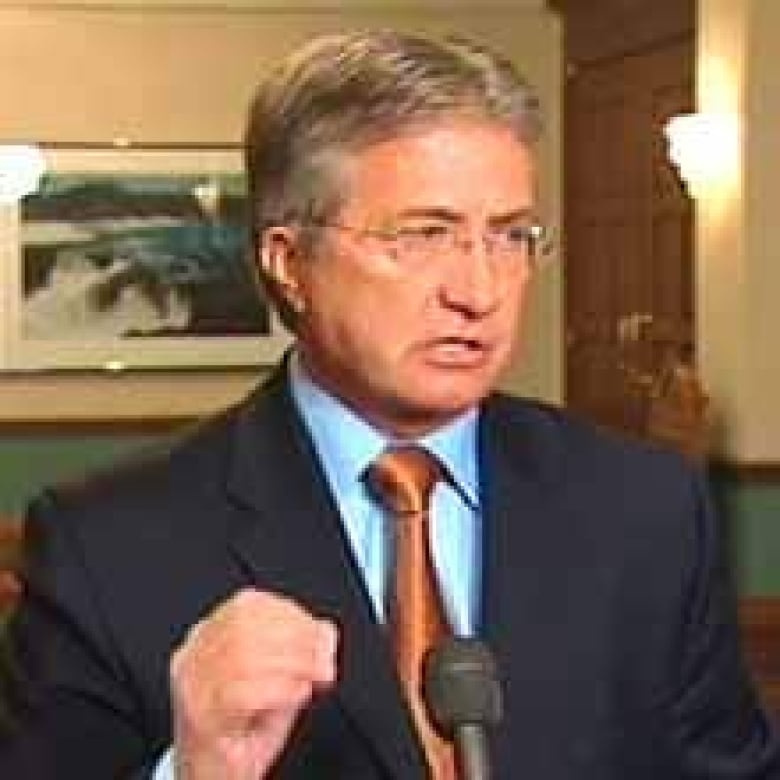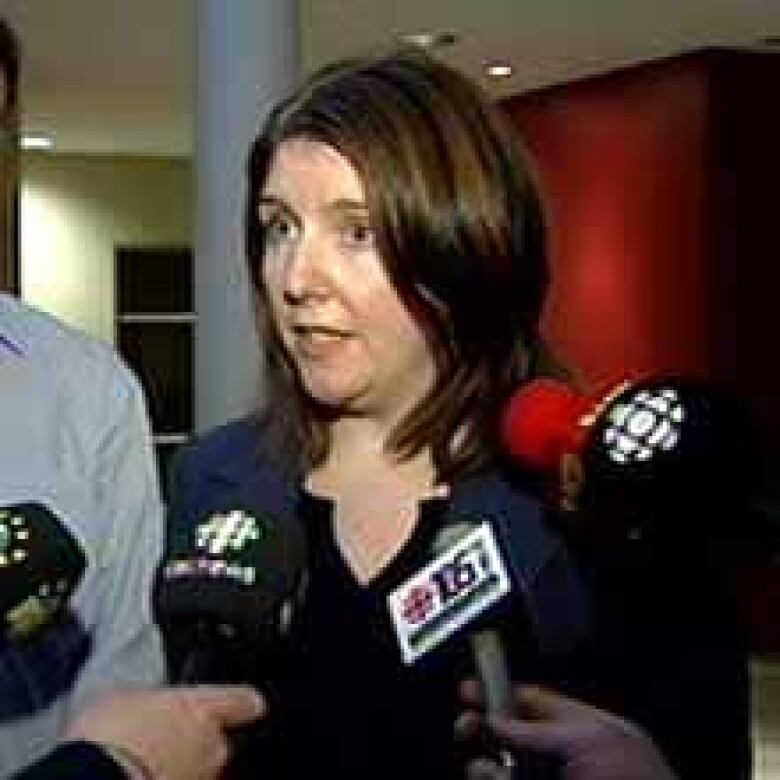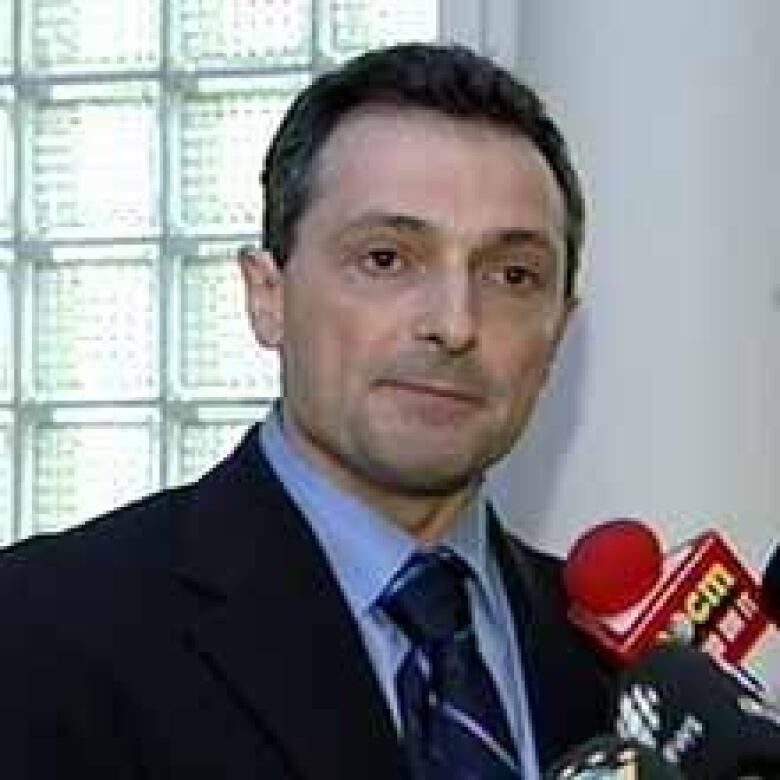Williams lashes cancer inquiry for 'inquisitorial methods'
'It appears to be more of a prosecution than an inquiry,' premier says

Newfoundland and Labrador Premier Danny Williams had sharp words Thursday for how the breast cancer inquiry that his government struck a year ago is performing.
"I think a lot of people are concerned by the inquiry not so much the format of the inquiry, but the style of the inquiry," Williams said Thursday evening after a high-level meeting with medical officials aimed at solving a crisis in staffing levels among pathologists and other professionals.
"It was acknowledged by ourselves and by the doctors in the room that [with] the inquisitorial methods that are being used, it appears to be more of a prosecution than an inquiry."
YOUR SAY
We must all understand what went wrong, and only then can we take steps to keep this sort of thing from happening again! Hence, the inquiry must continue to ask hard questions.
Lenny
Williams met with pathologists, other specialists and Newfoundland and Labrador Medical Association representatives Thursday evening, and government officials were to meet again with doctors on Friday.
Two pathologists recently tendered their resignations and a third is on stress leave. By next month, Eastern Health will have only 11 pathologists available to do the work that 19 specialists are supposed to handle.
Williams said the Cameron inquiry, which began hearing evidence in March on hormone receptor testing, is not helping.
"It's been very, very stressful on everybody who's been involved in that inquiry, at every single level, because of the tone, because of the nature," Williams told reporters.
No one 'wished any harm'
"It's not intended to be a witch hunt. It's not intended to be a blame-finding [exercise], it's not an attempt to hang someone out at the end of the day, because I don't think there's anybody involved in this entire process who wished any harm upon any of the people or any of the patients in this province."

Dr. Kara Laing, an oncologist who oversees the cancer-care program for Eastern Health, agreed with Williams's characterization of the inquiry.
"But I think tough questions have to be asked," she said. "Hopefully by doing that, at the end of the day some good things will come out of this."
Laing said that while the inquiry has been "very stressful" for physicians, many clinicians have found that patients even those who do not have cancer are also troubled about what they have been hearing about the health-care system.
"They're wanting reassurances that the inquiry is going to work through and, you know, come up with some very concrete and positive recommendations to improve health care in this province," she said.
Laing said she and other clinical staff are looking forward to have the opportunity to speak to the inquiry.
Many of the sharpest moments at the inquiry have occurred when co-counsel Bern Coffey, a former Crown prosecutor, has grilled politicians, bureaucrats and former Eastern Health chief executive officer George Tilley over their actions during the cancer testing crisis.
Williams himself has been mentioned several times during the inquiry. He was sent a briefing note in August 2006 that included data showing that more than 300 patients had received inaccurate test results, although the summary of that note did not include that fact. Williams has said he read the note, but viewed it only as an update.
Earlier this week, senior civil servant Robert Thompson testified that he had expected Williams to have been informed in July 2005, when he passed on an important note about the then-emerging issue to senior staff in the premier's office. Williams did not learn of the mistakes until media reports surfaced three months later.
Focus on solutions: Williams
Williams, who has been critical at times in recent weeks of media coverage of the breast cancer testing issue, said Thursday night he would like to see the inquiry turn to what he said was its purpose.

"I think it's time that we really got to where the inquiry should be going, [and] that's to find where the problems are and to find solutions," he said.
"Hopefully we can get this done, we can get to the end of this inquiry and can move on and probably have the best oncology-pathology section in the country, and that's where I see it going."
Williams has made provocative comments before about the inquiry. Last month, he wascritical of media coverage and commentary that he said was prejudging the commission's work. Shortly after that, Williams said he felt Eastern Health could not win a class-action lawsuit.
The inquiry so far has largely focused on what Eastern Health managers and then government officials did and did not do after learning of hormone receptor testing problems in 2005.
The inquiry has been told that Eastern Health officials could not agree on patient disclosure, that retesting samples took many months longer than anticipated, and that fear of litigation meant incomplete information was ultimately released to the public.
The government called the inquiry a year ago, after Eastern Health was shown to have withheld important information about the cancer tests, particularly that the error rate of a large number of samples was several times higher than the authority had said publicly.
The inquiry will look at what went wrong in the St. John's pathology lab between 1997 and 2005, when hundreds of breast cancer patients received inaccurate results on their estrogen receptor and progesterone receptor tests, which are used to determine whether a patient will benefit from the antihormonal therapy Tamoxifen.
Pay rates need dramatic overhaul: NLMA
The NLMA is campaigning for a significant change in how pathologists are paid, and notes that the specialists have the lowest pay scales in Canada.
The highest paid pathologist in Newfoundland and Labrador makes about $235,000 per year, while the starting salary in Ontario is about $340,000.
The NLMA also wants other issues, including overcrowded labs and a lack of technical support, addressed.
After Thursday evening's meeting, Williams said he would like to see a plan to solve the province's critical shortage of pathologists in place within 10 days.
"This is a unique situation, a special situation, and it will be treated as a special situation," Williams said.
"It will also be treated as a special situation within the medical profession."
The government is currently negotiating with other groups, including nurses, who are making wage demands above what government said it is prepared to pay.
Dr. Nash Denic, the chief of laboratory medicine at Eastern Health, said physicians are hopeful.
"The premier is very understanding," Denic said.
"He committed himself that he is going to resolve the issue and the crisis that pathologists are facing these days and that that's going to be resolved in the days to come and not in the month to come," Denic said.
Last year, the government introduced a special stipend of at least $50,000 to help recruit and retain pathologists. The NLMA, however, said the move was not significant enough.












_(720p).jpg)


 OFFICIAL HD MUSIC VIDEO.jpg)
.jpg)



























































































